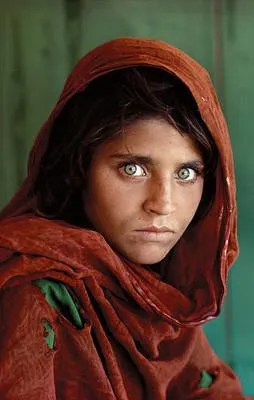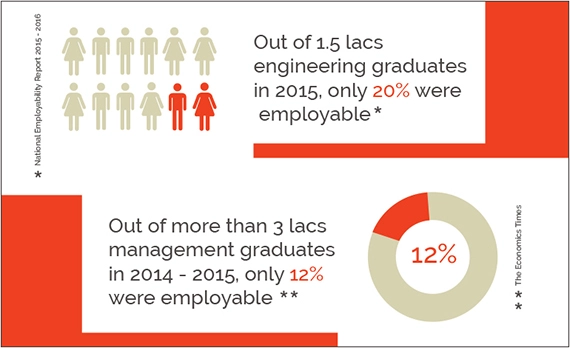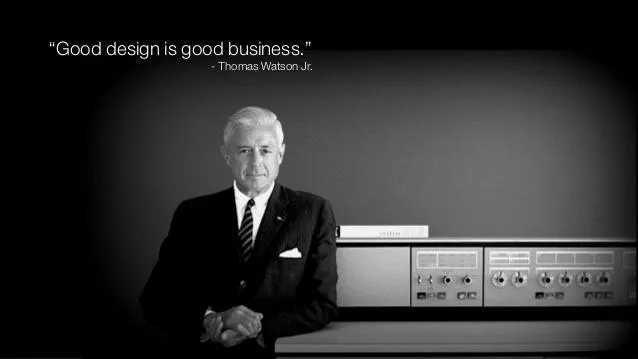Overview:
This blog delves into the field of fashion business management and explains the key business aspects of fashion. It highlights the importance of strategic business acumen, orientation to detail, strong communication abilities, and problem-solving to survive and grow in the industry. The blog also outlines the key differences between fashion design and fashion business management and mentions some of the job roles one can expect to get upon pursuing a degree in the latter.
Table of contents
- What is Fashion Business Management?
- Business Aspects of Fashion
- Who can opt for Fashion Business Management?
- Courses in Fashion Business Management
- Skills needed in Fashion Business Management
- Fashion Design VS Fashion Business Management: The Differentiation
- Career Options to pursue after Fashion Business Management
We all have played dress-up games as a kid and wanted to look as ‘Fashionable’ as possible! While the earlier notion of fashion revolved around shimmers and glitters, its definition has transformed completely. Fashion in the present day has become closely related to business management. So, for all those who want to experiment with the creative flow of this industry alongside exploring its working methodologies, Fashion Business Management opens doors to a plethora of opportunities. Wondering about the feasibility and sustenance of fashion with business management? Let us walk you through it.
What is Fashion Business Management?
While many people are well-versed with Fashion Design, Fashion Business Management comes across as an alien term. However, we have a question for you. What happens after the product is ideated and designed? This is where the role of Fashion Business Management comes in.
While traditionally, people limited the world of fashion to designers and models, and the people behind the working methodology did not get the limelight. However, recently, individuals have shown an awakening inclination towards the economic facets of the fashion industry, a major part of which includes the business and managerial aspects.
Fashion Business Management can be defined as building a brand value, solidifying the brand image and consolidating the consumer base.
- The field offers an amalgamation of creativity and an analytical approach to bringing forth merchandise that keeps the customer excited about what comes next.
- Graduates opting for the program in fashion business management are trained to gain an in-depth knowledge of the integration of business and management with the world of fashion.
Business Aspects of Fashion
While the fashion industry is often associated with eccentric personalities and glamorous fashion shows, but, there is much more value to it. Fashion firms are still firms and need to be looked upon from a business perspective. In terms of business practices, a fashion business manager needs to critically understand the strategic behaviour and the long-term goals associated with a fashion firm. The two major parts of the business in fashion include the product life cycle and the value chain.
Among these, the product life cycle includes 4 stages namely:
- Introduction
- Growth
- Maturity
- Decline
On the other hand, the value chain of a fashion organisation includes:
- Market research and product development
- Production
- Marketing
- Distribution and Sales,
However, you might be questioning, who can opt for this program? Do you need to hold the title of ‘beauty with brains? Or do you need to know how to do the perfect ramp walk alongside understanding analytics well? No. Let us answer that question for you.

Who can opt for Fashion Business Management?
If you have always been influenced by the glamorous fashion industry, but do not want to set your feet on the ramp, fashion business management is for you. Courses offered through fashion business management provide an intuitive mix of art and business.
Business and fashion are highly dynamic. And so, along with an understanding of statistics, one needs to have the ability to keep up with regular market trends, living up to the consumer’s expectations.
As the brand name grows, so does the standard and elite fashion collection. The customers start expecting better with every passing season. As an individual, if you like experimenting, are industrious to come up with strategies for business growth, you are good to go.
As long as you have a knack for the fashion and business industry, you are eligible to pursue this course. Students of all streams and fields can apply for courses in Fashion Business Management.
You can either opt for a Bachelor's Degree which is usually a 4-year long program (can vary depending on the institute) or you can opt for a master’s or diploma from Indian colleges or abroad.
Courses in Fashion Business Management
If you are planning to build a professional career in the field of the fashion business, opting for a specific course is always a wise decision. Not only will it just help you understand the elements of the field better, but it also enhances your skillset, helping you gain traction in real life.
Depending on your preference, courses in fashion business management are available at different levels including undergraduate, postgraduate and diploma. Most courses have an international focus and cater to the global market standards and requirements.
When pursuing a course in fashion business management, here’s what you can expect:
- Understanding of fundamental principles of the field which are taught through discussions, seminars, lectures and workshops
- Students can bag several internships which play a crucial role in the applicability of theoretical knowledge in practical fields
- Common modules offered include fashion marketing, the relationship between the fashion industry and culture, the history of the industry, business principles and ethics, brand identity, brand management, finance and management control, fashion retail, and digital marketing
Excited to pursue a course in this field already? Worry not. The Indian Institute of Art and Design is sure to live up to your expectations, help you gain diversified industry knowledge, interact and learn from the intellectuals in the field, know about the multi-billion-dollar fashion industry and its working methodology. No matter what stage you are at, whether a beginner or a professional, you are sure to derive value from the courses offered at the renowned institute.
Skills needed in Fashion Business Management
The fashion industry is swiftly expanding, and so is its need for individuals having an all-rounded skill set. But, what exactly do the employers expect from the professionals of this industry? Here are some of the skills that you must possess to excel in the cut-throat competition in the fashion industry:
Detail-oriented:
It is quintessential for the individual to have an eye for details, thereby understanding the intricacies of the field and implementing them with ease in the business.
Communication skills:
The fashion industry is correlated with consumer interaction and behaviour. One needs to understand the consumer emotions, connect with them, have good speaking and writing to persuade customers to put forth the brand in the frontline. Whether it be dealing with high-end professionals, top-notch brands or elite consumers, good communication is a basic yet quintessential skill to excel in the industry.
Problem-Solving Skills:
The business aspect of fashion comes with the need to tackle problems efficiently and patiently. The individual must hold the ability to take the right decisions in the spur of the moment, by considering the various influential factors.
Multidisciplinary:
The individual must know how to implement the acquired skills across different roles, including supply chain, management, finance among other areas of business, contributing to its growth.
Fashion Design VS Fashion Business Management: The Differentiation
Talking about fashion, and not mentioning fashion design is something very unexpected. Often considered as a limited field, fashion design and fashion business management tend to be used interchangeably.
|
Fashion Design |
Fashion Business Management |
|
Fashion Design is an industry niche. |
Fashion Business Management holds a multitude of career |
|
It can be considered as the face of fashion and is mostly |
It is the body operating behind fashion design. It will highly benefit a fresher looking to kick start their career in fashion to |
|
It is an artistic discipline focusing on |
It is an offshoot of businesses that |
Both profiles demand a different level of understanding and skillset. While designers need to possess exemplarily creative skills, creating designs that resonate with the audience, increases their credibility as an artist. On the contrary, fashion business managers need to be managerially innovative, handling the complete management of products developed by the designers. Their work is more towards the analytical front, expecting an analysis of market trends, research and brand consolidation so that brands can retain customers alongside expanding their customer base.

Career Options to pursue after Fashion Business Management
What’s next after you complete your course in fashion business management? There are not just one or two professional career options to choose from. Upon completion of their program, individuals can expect to find employment across retail outlets, clothing, designing and textile companies. Even better, if you have a potluck, you might end up working with the premium designers of the country. The more polished skills you ingrain, the wider are your chances of gaining a role across diversified positions in fashion business management.
Some of the roles that one can expect include
Apparel Brand Manager:
Working with apparel brands in the campaigning, marketing and customer satisfaction roles.
Boutique Fashion Manager:
They are entitled to conduct a detailed analysis of campaigns, monitoring the quality and management of the firm.
Retail Manager:
Working in retail chain outlets by closely associating with customers to understand their expectations and feedback. This role can come with an extensive amount of travelling.
Fashion Product Manager:
They take up the responsibility for product development and understand it from the customer’s perspective.
Fashion Brand Manager:
They hold the responsibility of bringing new and innovative strategies for product promotion and increasing brand value in the market.
Fashion Marketing Manager:
They are responsible for overlooking strategies to entice the consumer towards the product.
Public Relations Manager:
They take up the role to build and maintain relations with media and consumers.
The field of fashion is something that most people look up to. It serves the expectations of consumers in a luxurious way. Responsible for the employment of millions of people, the industry is perfect for those who want to blend their creativity with practicality.
Fashion isn’t limited to pop colours and ramp walks! Look beyond it and you are sure to find incredible opportunities in this era of globalization. Let’s talk about fashion, the entrepreneurial way.
Explore More
- What is Fashion Business Management? – Dive into the world of fashion business management and learn how it integrates creativity and business strategies to drive success in the fashion industry.
- Emerging Trends in Fashion Business Management – Stay updated on the latest trends shaping the fashion industry, including sustainable practices, e-commerce growth, and digital marketing innovations.
- Career Opportunities in Fashion Business Management – Learn about diverse career paths in fashion business management, such as product management, fashion marketing, retail buying, and entrepreneurship.
- The Role of Marketing in Fashion Business Management – Understand how effective marketing strategies are crucial to building brand identity, engaging customers, and driving sales in the competitive fashion industry.





